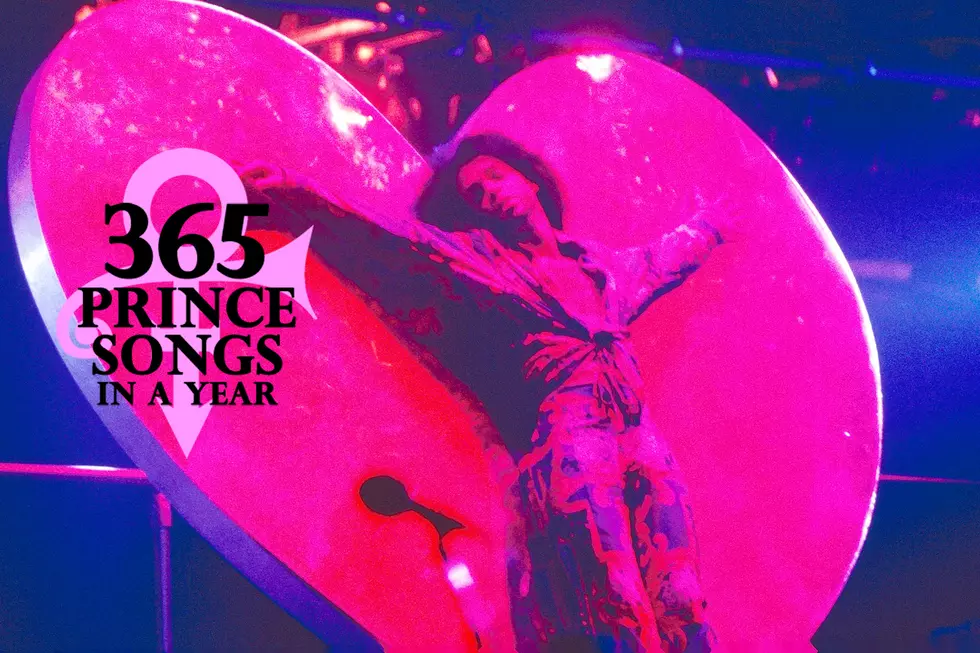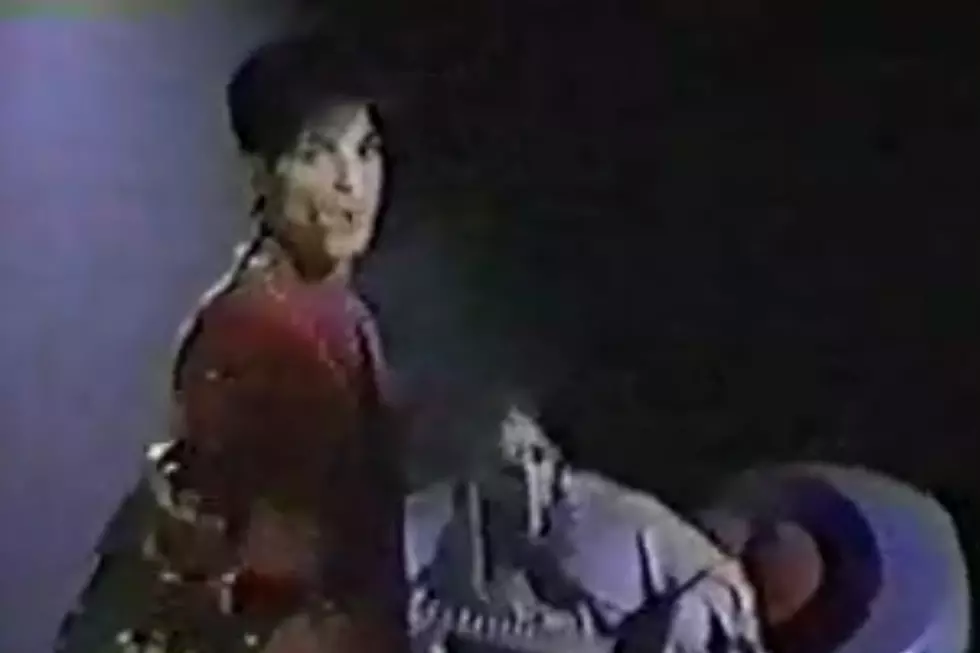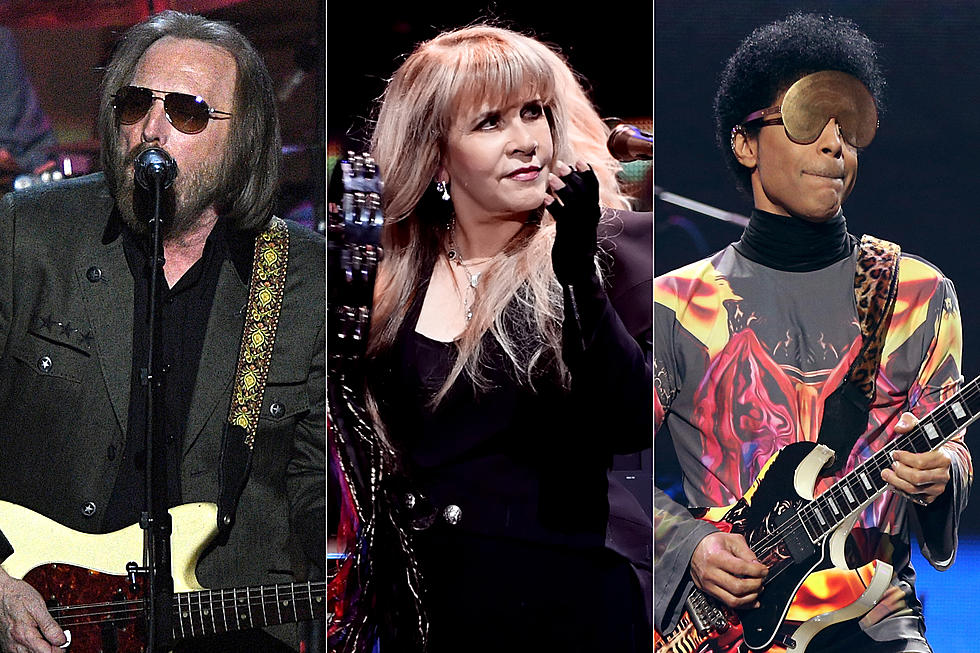
‘Adore’ Is the Love Song to End All Love Songs: 365 Prince Songs in a Year
To celebrate the incredibly prolific, influential and diverse body of work left behind by Prince, we will be exploring a different song of his each day for an entire year with the series 365 Prince Songs in a Year.
"Adore" is a great final note on Prince's magnum opus, 1987’s Sign O' the Times. A slow jam for the ages, the song combines balladry with a sense of eroticism that only Prince could muster, while also calling upon lyrical and musical tropes closely associated with gospel. Prince’s music, long-considered to walk a tightrope between pleasures of the flesh and sacraments of the spirit, merges the two seamlessly on this song. Already the most talented and versatile performer of his generation, “Adore” found Prince staking his claim as a soul balladeer on par with Marvin Gaye and Al Green.
The song was conceived in late 1986, as Prince was working on one of his most ambitious projects, the triple-album Crystal Ball. Due to his prolific rate of recording and releasing material, not to mention his steadily declining album sales, Prince received pressure from his label to trim the project down to a more acceptable length. The three-disc Crystal Ball morphed into the double-album Sign 'o’ The Times.
Around that same time, Prince fired The Revolution and essentially turned Sign O' the Times into a one-man band project. “Adore” proved, however, that they hadn’t completely removed themselves from Prince’s life.
The song, like several on this album, was reportedly written about Susannah Melvoin, twin sister of Revolution guitarist Wendy and an adjunct member of the band herself. Proof? She also was in a tumultuous relationship with Prince at the time, and was even engaged to him at one point. When "Adore" was released in the spring of 1987, the relationship had already run its course, leaving it to stand perhaps as a stunning snapshot of the deep feelings Prince had for Susannah.
Prince was clearly smitten with her, and that certainly seems to be reflected in the relative maturity of the song – especially when compared to Prince’s previous lyrical output. Sure, he’d written his fair share of songs about infatuation or sexual attraction in the decade prior, but only rarely did the lyrical content of these songs explore a desire to do anything other than bump uglies. “Adore” finds Prince exploring something deeper.
He acknowledges the seriousness of his feelings by explaining how he's not interested in sex just for the sport of it ("I ain't fucking just for kicks, no!") and by promising he'll give up all of his possessions for the love of his partner – with one exception: "Well, maybe not the ride." He falls into a brief preacher's reverie, singing "do you know what I'm saying to you this evening?" in a cadence that should be familiar to anyone who’s ever attended a black church. He even demonstrates his maturity by calling back to the second verse of 1979's "I Wanna Be Your Lover," telling his partner that he's ready to be "more than your mother, more than your brother." And as Michaelangelo Matos writes in his 33 ⅓ book on Sign O’ the Times, Prince means every single word of it. Or, rather, “every last fucking dappled, gold-embossed, spangled, dewy-eyed, iridescent, opalescent (that’s right, this song emanates light and diffracts it), incense-permeated, sweet-time-talking, defenses-breaking, manifest-destiny-love-sweet-love second of it.”
Musically, “Adore” was a song that nodded toward soul music’s past and present. The liner notes to 1993’s The Hits/The B-Sides compilation states that Prince was inspired by the “quiet storm” sound of urban radio as exemplified by artists like Patti LaBelle (who Prince would later work with) and Luther Vandross. However, it’s hard to believe that some inspiration didn’t also come from the Memphis-based Hi Records sound, specifically the long string of classic ballads by Al Green, the label’s flagship artist. The churchy, swelling organ and the luscious horn charts (played by Eric Leeds and Matt "Atlanta Bliss" Blistan) would’ve been right at home on classic Green albums like Let’s Stay Together and I’m Still In Love With You.
“Adore” was one of the handful of songs on the aforementioned Prince compilation to have never been released as a single, although it was immediately a smash with Prince’s black fan base. Cumulatively, it’s very likely that “Adore” received more urban radio airplay than any song on the album, including all five of its commercially released singles. As if to prove it's enduring power with Prince’s core fan base, the African-American woman’s lifestyle magazine Essence listed “Adore” as the 11th-greatest slow jam of all time, while the popular urban website Soulbounce placed “Adore” as the second-best R&B song ever.
That isn’t to say more mainstream outlets ignored it. Press outlets from Time to Rolling Stone to Consequence of Sound have heaped praise on “Adore” over the years, while Robert Christgau was very likely referring to “Adore” when he praised Prince in a Sign O' the Times review for showing off "vocal chops that make Stevie Wonder sound like a struggling ventriloquist.”
“Adore” is almost held in sacred regard, as evidenced by the surprisingly small amount of times it’s been covered: A solid version by ‘90s R&B quartet Silk is one of the few commercially released remakes in existence. Prince himself had a soft spot for the song, as it was a near-constant presence in his live repertoire up until his final show. To paraphrase Prince’s own lyric, “love” seems too weak a word to describe how much this song is adored.






